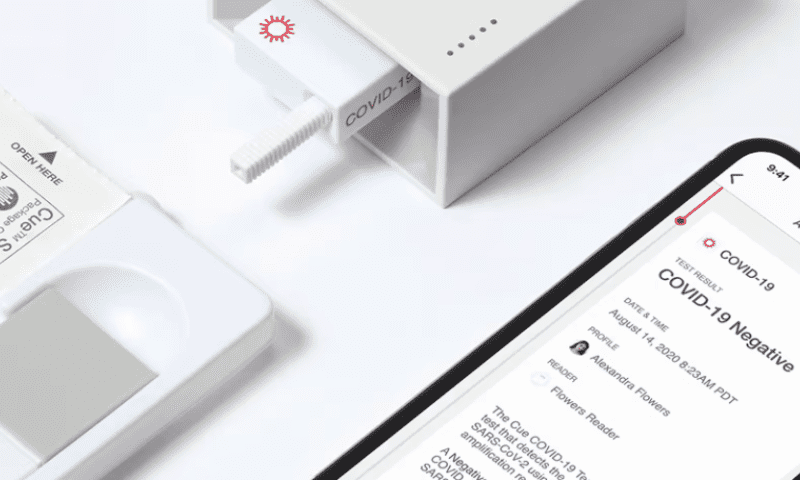After rocketing to medtech stardom amid the COVID-19 pandemic, Cue Health seems to be drifting back down to Earth.
Less than a year after it went public in an IPO that valued it at $3 billion and brought in proceeds of around $200 million—which Cue said at the time would be used in part to help expand its workforce—the diagnostics developer is slimming down its business.
A company spokesperson confirmed to Fierce Medtech on Monday that Cue has made the “difficult decision” to lay off 170 people from its manufacturing workforce. The San Diego-based company—which had a headcount that stood at more than 1,200 as of last fall—attributed the layoffs to “the economic challenges that are impacting many industries, as well as the U.S. government’s recent decision to reduce funding for COVID-19 testing.”
The statement continued, “We remain confident in our long-term strategy as we continue to broaden the number of customers we serve and advance our menu of future care offerings, reinforcing our mission to improve how healthcare is delivered by making it more efficient and timely, ultimately leading to better outcomes for people’s health.”
Cue’s diagnostic testing platform centers around a $250 portable reader that analyzes single-use cartridges to return PCR-quality test results within 20 minutes, sending the results directly to a user’s smartphone.
The bad news follows what has seemed to be a never-ending stream of much more positive updates from Cue. Early on in the pandemic, it received a $13 million contract from the U.S. government to develop its portable COVID-19 test.
In the ensuing months, in addition to locking in a pair of emergency authorizations for the hand-held testing platform—first for use under the supervision of a medical professional and then for over-the-counter, at-home sales—it raked in hundreds of millions in venture funding and another $481 million from the Defense Department and racked up testing contracts with the NBA, MLB and more.
Amid that influx of support, the company said it would double its Southern California footprint to span more than 110,000 square feet of space. And, as it went public, the company’s chief product officer and co-founder, Clint Sever, told Fierce Medtech, “We’ll be investing more to grow our menu of tests, we’ll be investing to expand our production capacity, to add additional software and services and to further build out the team.”
The initial public offering came last September, when Cue hit the Nasdaq under the ticker symbol “HLTH.” Though it opened at a price of $20 per share, the stock had fallen to nearly half that within about a week and hasn’t risen back above about $13.50 since. As of Monday afternoon, the share price had slipped below the $4 mark.
Despite that downward trend, Cue has so far reported consistently strong financial results. It closed out 2021 with just over $618 million in revenue for the year—a huge leap from 2020’s $23 million—and with a net income of more than $86 million. But while the first quarter of 2022 maintained that success, with nearly $180 million in earnings, Cue warned that it was expecting a major drop-off in the near future, forecasting second-quarter revenues of somewhere between $50 million and $55 million.
Only time will tell whether the layoffs and predicted drop in revenues are an obstacle to or a direct result of what Cue has been touting as the pivot from its well-known status as a coronavirus test provider to offering a much wider range of diagnostic tests since, as Sever told Fierce Medtech last year, “We’re way more than a COVID-19 testing company.”
On deck for the testing platform, Sever said, are flu and respiratory syncytial virus diagnostics plus a handful of other assays for women’s health and sexual health. According to the first-quarter financial report released last month, clinical studies for the flu test were already nearing completion, while studies of a flu and COVID combination test, the RSV assay and another combined test for chlamydia and gonorrhea were on track to begin in the coming months.

